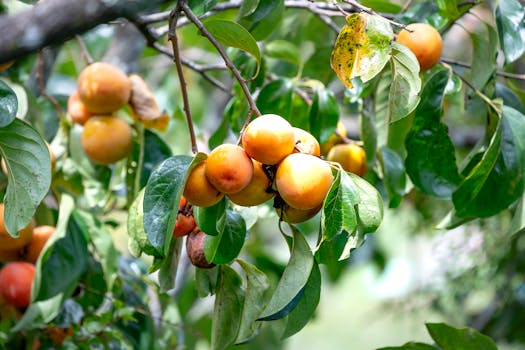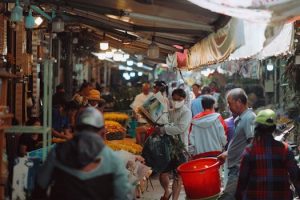Sustainable Agriculture Policies: Impact on Food Production
Sustainable agriculture is a term that has gained prominence in recent years, as the need for long-term solutions to global food production becomes increasingly apparent. With growing concerns about the impact of conventional farming practices on the environment and food security, sustainable agriculture policies have become a key priority for governments and organizations around the world. These policies aim to promote practices that can maintain the productivity of agriculture while minimizing negative impacts on the environment. In this article, we will delve into the impact of sustainable agriculture policies on food production, exploring the various benefits and challenges associated with implementing them.
The Importance of Sustainable Agriculture Policies
Ensuring Food Security
The fundamental goal of sustainable agriculture policies is to ensure food security for current and future generations. The United Nations’ Food and Agriculture Organization defines food security as “all people, at all times, having physical, social, and economic access to sufficient, safe, and nutritious food that meets their dietary needs and food preferences for an active and healthy life.” With the world’s population projected to reach 9.7 billion by 2050, sustainable agriculture policies become essential in meeting the growing demand for food.
Reducing Environmental Impact
Farming has a significant impact on the environment, with conventional agriculture practices often causing soil erosion, water pollution, and greenhouse gas emissions. Sustainable agriculture policies aim to mitigate these negative impacts by promoting practices such as crop rotation, conservation tillage, and integrated pest management. These practices help to improve soil health, reduce water usage, and minimize the use of harmful pesticides and fertilizers.
Promoting Biodiversity
In addition to environmental concerns, conventional agriculture also has a significant impact on biodiversity. The expansion of monoculture crops and the use of chemical inputs have contributed to a loss of biodiversity in agricultural landscapes, leading to the decline of pollinators and vital species. Sustainable agriculture policies seek to promote biodiversity by encouraging the use of diverse crop rotations, agroforestry, and more natural pest control methods.
The Benefits of Sustainable Agriculture Policies on Food Production
Increase in Efficiency and Productivity
Contrary to popular belief, sustainable agriculture does not necessarily mean lower yields. In fact, many studies have shown that sustainable agriculture practices can lead to higher yields, especially in the long run. By improving soil health, reducing resource wastage, and promoting natural pest management, sustainable agriculture can increase the efficiency and productivity of agriculture, resulting in a more stable food supply.
Greater Resilience to Climate Change
Climate change is one of the most significant threats to food production, with extreme weather events, water scarcity, and soil degradation all impacting agricultural productivity. Sustainable agriculture practices, such as conservation tillage and crop diversification, can help mitigate these risks by improving soil resilience and increasing adaptability to changing climatic conditions. This resilience is crucial in ensuring food production remains stable, even in the face of unpredictable weather patterns.
Improved Food Quality and Nutrition
Sustainable agriculture encourages the use of natural inputs and practices, resulting in higher-quality and more nutritious food. By minimizing the use of chemical inputs and promoting diverse crop rotations, sustainable agriculture can improve soil health, leading to more nutrient-rich crops. This can have significant implications for human health, addressing issues such as malnutrition and diet-related diseases.
The Challenges of Implementing Sustainable Agriculture Policies
Barriers to Adoption by Farmers
One of the main challenges of implementing sustainable agriculture policies is the resistance from farmers who may be used to conventional practices. Sustainable agriculture often requires significant changes in farming methods, which can be daunting for farmers. Additionally, these changes may require more upfront costs, making them less attractive to farmers who are struggling to make ends meet. Education and financial support are crucial in overcoming these barriers and promoting the adoption of sustainable agriculture practices.
Trade-Offs in Short-Term Productivity
While sustainable agriculture practices may lead to higher yields in the long run, there may be trade-offs in the short term. For example, transitioning from conventional to organic farming may result in a decline in yields initially. This can deter farmers from adopting sustainable practices, as they may not be able to afford the potential decrease in productivity. Again, education and financial support can help mitigate these challenges and promote the long-term benefits of sustainable agriculture.
Policy Implementation and Enforcement
The success of sustainable agriculture policies relies heavily on effective implementation and enforcement. Governments must put in place regulations and incentives to encourage farmers to adopt sustainable practices. These policies must also be continuously monitored and enforced to ensure their effectiveness. However, this can be challenging, especially in countries with limited resources and political instability.
Conclusion
Sustainable agriculture policies have a significant impact on food production, with considerable potential to address pressing global challenges such as food security, climate change, and environmental degradation. However, their successful implementation requires the cooperation and support of governments, farmers, and consumers alike. With more education, financial support, and effective policy implementation, we can continue to promote sustainable agriculture and secure a sustainable food future for generations to come.











